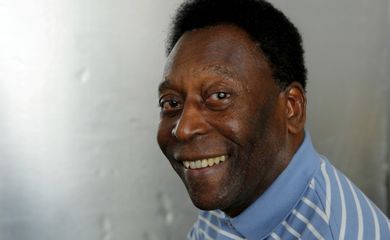China says it doesn't fear the domino effect of boycotts of the Winter Games


China is not concerned about a "domino effect" of diplomatic boycotts of the 2022 Winter Olympics (Beijing), the country said on Thursday (9) after Australia, the United Kingdom and Canada joined the United States in deciding not to send authorities to the Games.

The US was the first to announce a boycott, saying on Monday that its government officials will not attend the event between February 4 and 20 because of human rights “atrocities” in Xinjiang, a region in western China.
"I don't see any need to be concerned about a domino effect," Chinese Foreign Ministry spokesman Wang Wenbin said at a daily news conference when asked about the possibility of further boycotts.
“On the contrary, most countries in the world express support for the Beijing Winter Olympics,” he said.
The diplomatic boycotts of the US and its allies come at a time of sharp deterioration in US-China relations, which began under former President Donald Trump.
The government of US President Joe Biden continues to press China on various issues, including human rights and Chinese maritime claims to the South China Sea.
Wang noted that on November 2, the United Nations (UN) adopted a resolution co-sponsored by more than 170 of its 193 member countries for an "Olympic Truce", calling on countries to place themselves above politics and unite in sport during the Beijing Games.
A "considerable number" of foreign leaders and members of royal families have registered to attend, he said.
Russian President Vladimir Putin is the only leader of a large country who has publicly accepted an invitation.
Wang said China does not intend to invite officials from the UK and Canada to the Games and that his absence would have no impact on the event's success.
The spokesman also said that the US and its allies "will pay the price for their wrongdoings" and that they "used the platform of the Olympics for political manipulation".
On Tuesday, China said it would "resolutely adopt countermeasures" against the US because of its boycott, but did not specify what they would be.
The next day, Australian Prime Minister Scott Morrison said the decision stemmed from his country's difficulties in restoring diplomatic channels with China to debate alleged human rights abuses in Xinjiang and Chinese measures against Australian imports.
China denies any wrongdoing in Xinjiang and says the allegations are fabricated.
Text translated using artificial intelligence.





